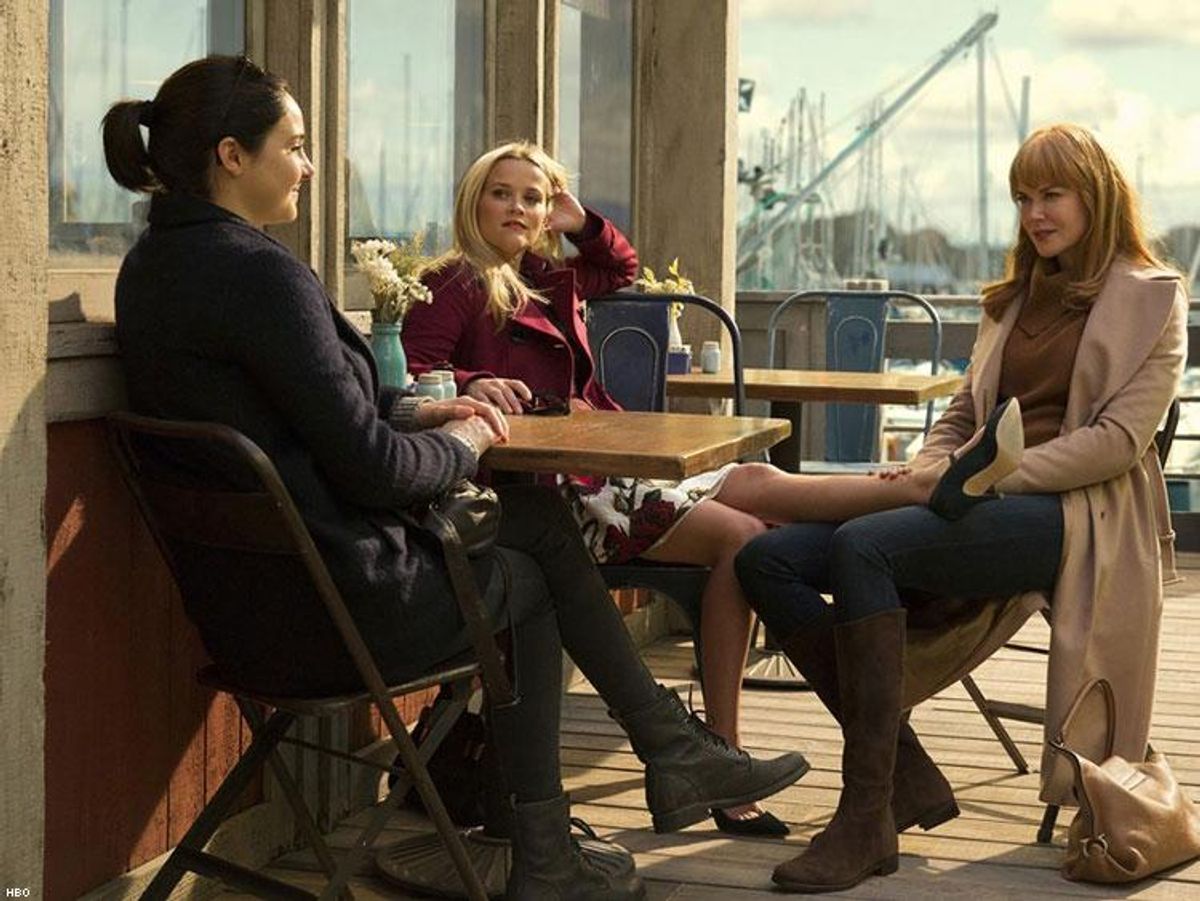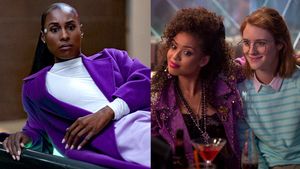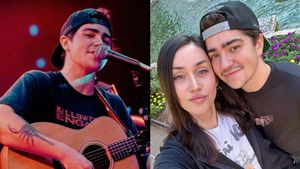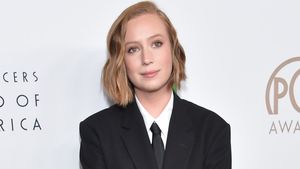It was a big year for women tearing each other down. Oscar winner Susan Sarandon famously said that Hillary Clinton was more dangerous for the country than Donald Trump, while it turned out that 53 percent of white women voted for Trump despite knowing his track record with women and his running mate's utter disdain for women's rights. So when HBO's juggernaut Big Little Lies premiered seven weeks ago, it was tough to know from the first moments of the pilot if the series was merely a tone-deaf extrapolation of teen mean girl plots to privileged adult moms using their children as weapons and shields, or if searing social commentary would play out among the women nestled in the idyllic setting of California's Monterey Coast. It turned out that the latter was true, but with the added pleasure of a moving denouement that was couched in the women's loyalty to one another.
The day after Trump's inauguration, millions of women and allies protested worldwide under the umbrella of the Women's March. For a moment, Clinton's tried-and-true followers, Jill Stein's acolytes, and the Bernie or Busters gathered together to fight a common enemy -- the Trump administration. In its way, Big Little Lies is an allegory for our time -- spoilers ahead if you've yet to watch the show's finale...
Big Little Lies begins with the worn TV and movie trope of mostly upper-class, mostly white, female characters Madeline (Reese Witherspoon), Celeste (Nicole Kidman), Jane (Shailene Woodley), Renata (Laura Dern), and Bonnie (Zoe Kravitz) shredding each other or being shredded to bits out of jealousy and boredom. But the seven-episode story ends on a note of pure unity with the women coalescing around a common cause, namely ending the violence inflicted on Nicole Kidman's Celeste at the hands of her deeply troubled, violent husband, Perry, played by the frightfully convincing Alexander Skarsgard. When the sweet, Zen-like, organic food-growing, yoga-loving Bonnie shoves Perry down a flight of stairs -- unwittingly killing him -- to save Celeste, the friends and frenemies of Monterey band together to cover it up and to protect Bonnie. The series' parting shots of the five women frolicking lovingly on the beach with their children telegraphs the extent of their bond.
The series hews fairly close to the plot of Liane Moriarty's novel of the same name -- the most notable exception being that the story was moved from the author's home country of Australia to California's Central Coast -- including the shocking, if not completely satisfying ending. Still, from the project's inception, it was a labor of love and friendship that Kidman and Witherspoon, who've both been active in producing projects for years, helped bring to fruition.
Witherspoon brought the project to Kidman who familiarized herself with the source material and then told Witherspoon, "If you're in, I'm in," according to a piece in The New York Times. From there, Witherspoon reached out to the series director Jean-Marc Vallee, who directed her Oscar-worthy turn in Wild, which costarred Laura Dern. Witherspoon and Kidman enlisted Dern for the role of tightly wound mother and businesswoman Renata, and she then got her friend "Shay" Woodley on board to star as Jane, the working-class outsider whose presence and dark past shake up the characters' world of sauvignon blanc and play dates.
"As much as it's about women who are feuding, who are trying to destroy one another, it's also about friendships," Kidman told the Times. And nowhere is that more clear than in the juxtaposition of competing relationships of Witherspoon's meddling firebrand but also fiercely loyal part-time community theater producer Madeline, who takes newcomer Jane under her wing from their first happenstance meeting at the school and who vehemently defends her and her 6-year-old son Ziggy, who's falsely accused of bullying Renata's daughter Amabella. As Madeline protects the vulnerable Jane, whom she barely knows, she simultaneously, and with razor-sharp insults, taunts, terrorizes, and undermines the control freak Renata.
The dark underbelly of Big Little Lies' Monterey is revealed from the first episode through flashbacks to the town's elementary school's "Audrey and Elvis"-themed fundraiser, where the audience learns an investigation is under way following what appears to be a homicide. As the show progresses, past and present intermingle via flashbacks and police interviews with other parents and townspeople. Women and men alike judge and condemn the five female lead characters for real and perceived flaws. Although, as "fake news" proves and Big Little Lies' narrative affirms, perception is often damning enough.
From the outset, and in a thrilling extension of the working relationship that brought the series to the small screen, Witherspoon's Madeline and Kidman's Celeste enjoy a deep, abiding friendship that is at the heart of the show. But while Madeline is the keeper of Jane's dark secret -- that her son Ziggy is the product of a rape from an initially consensual encounter with an upper-class businessman who violently snaps -- she's not privy to Celeste's private shame: that her husband continually beats her to a pulp before and during sex before pathetically begging forgiveness.
The interweaving of women's relationships is further complicated by Madeline's ex-husband's new marriage to the young earth mother Bonnie, who becomes a confidante for Madeline and her ex's teen daughter. If Madeline, Celeste, and Jane form the core friendship of the series, then Renata and Bonnie pivot around them, one of them a controlling irritant and the other an open, loving peacemaker both envied and resented.
The teen mean girls motif as social commentary has been popular in film for decades, most famously with Heathers (1988) and Mean Girls (2004), but television's TV friendships outside of soaps like Dynasty and Melrose Place, which thrived on catfights, have tended to feature stories in which women's collective friendships serve as a proxy for romantic relationships. Looking back at another HBO show that featured a female lead cast, despite Sex and the City's focus on dating, and well, sex, the core relationship of the series was always the friendship between Carrie, Miranda, Samantha, and Charlotte. Comparisons to ABC's Desperate Housewives make sense in some ways, but that series, which also hinged on a murder, never reached the gravity or the characters' ultimate commitment to each other that plays out in Big Little Lies. There's an argument to be made that Big Little Lies is in some ways an adult answer to Freeform's long-running teen girl mystery series Pretty Little Liars, which also kicks off with a murder, girl-on-girl bullying, and the ultimate coming together of the female characters -- some of them disparate -- against a common enemy.
But while comparisons are inevitable and useful regarding Big Little Lies' examination of women's relationships, especially at a time when catfights are so hot that the decades-old rivalry between Bette Davis and Joan Crawford makes for delicious fodder in Ryan Murphy's Feud: Bette and Joan, it's safe to say that the series stands alone in dismantling the harmful trope that women don't support each other. If only there were more women like them in the voting booth last November.














































































Fans thirsting over Chris Colfer's sexy new muscles for Coachella